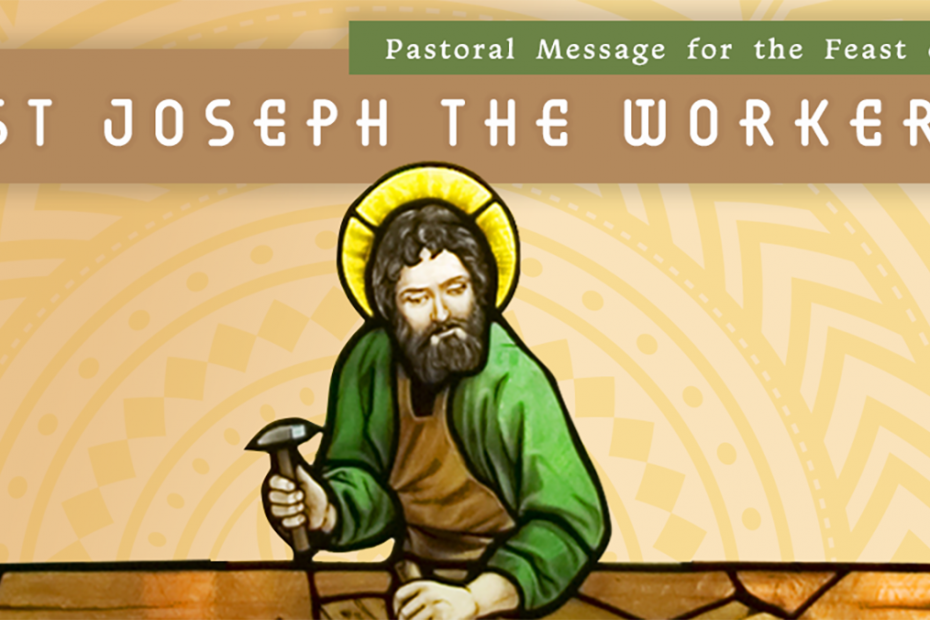Exploitation of People with a Disability
The 2023 Royal Commission into Violence, Abuse, Neglect and Exploitation of People with a Disability shone a light on the many struggles faced by people with a disability.
On this Feast of St. Joseph the Worker, I want to focus on one aspect of the Commission’s report – employment. In particular, three major concerns are worth highlighting.
Employment Mis-alignment and Skill Underutilization
The report reveals that people with disabilities often find themselves in roles that do not align with their skills, education, or career interests. Many individuals report being placed in entry-level or low-skilled positions, even when they possess advanced qualifications, limiting their ability to advance or earn a sustainable income. This disconnect not only restricts professional growth but also fosters a sense of frustration and underutilization, where people with disabilities feel their potential and capabilities are overlooked by employment services and employers.
The Commission recommended an overhaul of disability employment services to provide individualised, person-centred support that aims to find employment that matches the skills and qualifications of workers with a disability. Staff in disability employment services also need training to understand the needs of workers with a disability better and to provide adequate support.
Discrimination and Attitudinal Bias
Negative stereotypes and discriminatory attitudes among employers create substantial barriers for people with disabilities seeking open employment. There is a persistent misconception that people with disabilities cannot perform effectively in professional roles or that accommodating them is excessively costly. These biases affect hiring practices, with some employers explicitly excluding or disadvantaging applicants with disabilities.
Within workplaces, these biases can manifest as reduced opportunities for career advancement, denial of reasonable accommodations, and sometimes direct exclusion or isolation from essential activities. Such barriers undermine confidence and self-worth among individuals with disabilities. The Commission recommended stronger legal protections to ensure the rights of workers with a disability are respected.
Segregated Workplaces
Disability enterprises are workplaces set up to provide employment to people with a disability. They separate people with a disability from the mainstream workforce. For some people with a disability, working in these enterprises is a choice. For others, it is the only option they have. Those working in disability enterprises can be paid below the minimum wage. Other than prisoners, no other Australian can be paid below the minimum wage.
The Royal Commission said this must stop and proposed that such segregated workplaces should be phased out so that workers with a disability can work in mainstream workplaces with appropriate support and receive the same pay as others.
Accompanying People with a Disability
We can find out more about the frustrations of workers with a disability by reading their stories in the Royal Commission’s report, but why not also talk to people with a disability in the community so that we can understand their daily struggles better and offer them support to get and keep secure and rewarding jobs?
Jesus noticed people with a disability or illness; he listened to them; he called them to him. He did not offer them pity; he welcomed and included them. He tore down the barriers which kept them on the edges of society and enabled them to live fulfilling lives again.
Thus, for example, in his encounter with the man with leprosy, he broke ranks with his contemporaries. By touching him and healing him, Jesus showed that the rejected are God’s companions. By commanding him to go to the temple, he challenged the community to examine its attitudes and practices in respect of the marginalised and the outcast.
This is the new life which God promises us through the resurrection of Jesus. Jesus declared that, in him, the blind will recover their sight and the oppressed will go free. We are all drawn into the new life he won on Easter Sunday. In this way, we are all entrusted with continuing Jesus’ mission to accompany people with a disability in their struggle for good employment and a chance to participate fully in society.
Bishop Vincent Long van Nguyen OFMConv
Chair, Bishops Commission for Social Justice, Mission and Service
